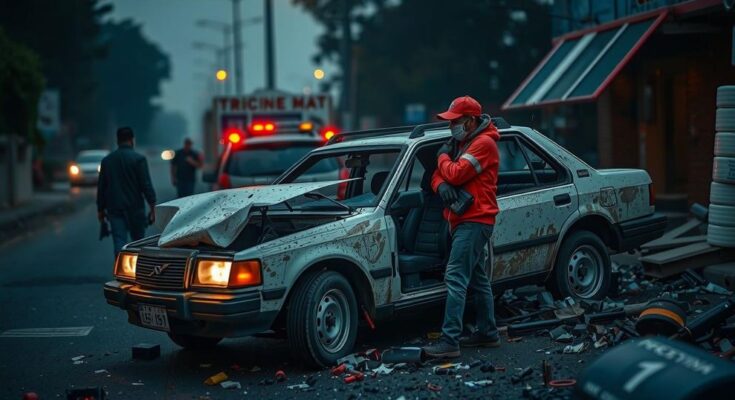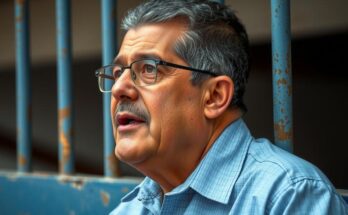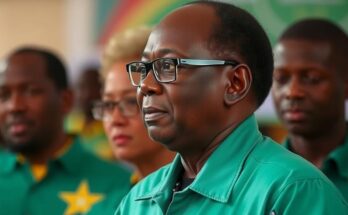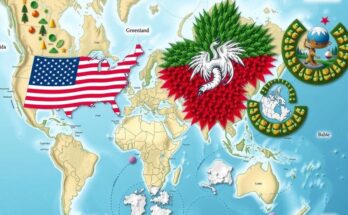Evo Morales reported his vehicle was shot at amidst rising political tension with President Luis Arce, claiming the incident reflects a dangerous escalation in violence. Morales’s accusations lead to governmental denials as unrest grows with supporters blockading highways, complicating supply routes. Both leaders are engaged in a power struggle within the MAS party, contributing to Bolivia’s ongoing socio-economic crises.
In a tense and escalating political climate in Bolivia, former President Evo Morales reported that his vehicle was struck by gunfire, an incident he claims is emblematic of the growing violence between him and current President Luis Arce, his former ally. Morales shared a disturbing video on Facebook, filmed from within his moving vehicle, which shows him seated in the front passenger seat with visible bullet holes in the windshield, suggesting a serious threat to his safety; the driver appeared to have sustained injuries. Allegedly, two vehicles intercepted Morales’s car and opened fire, with one bullet narrowly missing him. His accusations against the government have been met with official denials; Deputy Security Minister Roberto Ríos stated that there was no police operation directed against Morales. Ríos affirmed the commitment to investigate all reports of violence seriously, irrespective of their veracity. Morales’s grievances come amidst heightened tensions, particularly with his supporters engaging in protests and road blockades of critical supply routes, which have aggravated shortages of food and fuel throughout the nation. The government accused Morales of inciting instability and attempted to undermine democratic processes, highlighting that 14 police officers were injured while attempting to manage the unrest. While both Morales and Arce belong to the Movement for Socialism (MAS) political party, they have increasingly diverged in their political paths over the past year, culminating in a struggle for influence ahead of the elections slated for 2025. Bolivia is currently facing significant economic challenges, characterized by declining gas production, dwindling foreign reserves, and rising inflation, all of which contribute to the internal strife within the ruling party.
Evo Morales served as Bolivia’s president from 2006 until his resignation in 2019 amid widespread protests. His time in office was marked by significant social reforms and economic changes, but also allegations of authoritarianism, particularly concerning elections. The political landscape has been fraught with tension, especially following his departure from power and the installation of Luis Arce as president in 2020. Arce, who was previously Morales’s economy minister, now faces internal pressures from various factions within their party as the nation wrestles with economic turmoil and social unrest, all while elections loom in the near future.
The recent incident involving Evo Morales’s vehicle being fired upon underscores the escalating political tensions between him and President Luis Arce, reflecting a broader struggle for power within Bolivia’s ruling party. As both leaders continue to clash amidst a backdrop of economic challenges and social unrest, the situation is likely to intensify, requiring careful management to mitigate potential violence and restore stability in the country. The implications of these developments not only threaten Bolivia’s immediate political landscape but may also have lasting impacts on its future governance and civil order.
Original Source: www.theguardian.com




